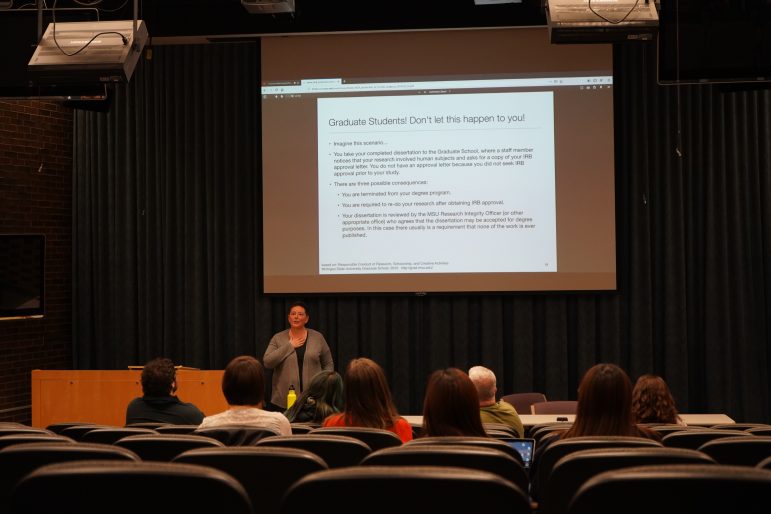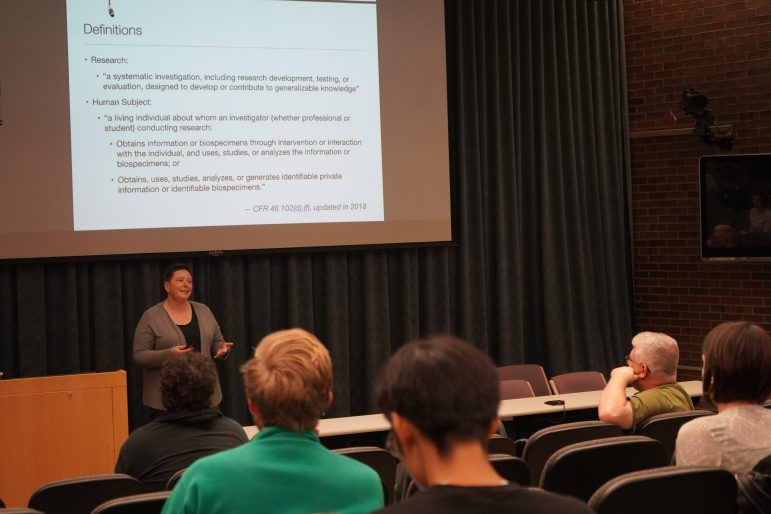
Associate Professor Emilee Rader gave a lecture for graduate students of the College of Communication Arts and Sciences at Michigan State University on Monday, Oct. 14. She talked about the importance of protecting human subjects in research.
Rader, who researches human-computer interaction at MSU, started her lecture asking how many participants had heard about the Institutional Review Board.
Then, Rader talked about what needs to be clear before to start research where human subjects would be involved. She explained the Belmont report, a federal document that showcases principles and guidelines for the Protection of Human Subjects of Research.
“There are three principles of ethical research,” Rader said. “Respect for persons. Beneficence. Justice.”
Dr. Rader said that some cases are exceptional, and tech giants’ terms of use ought to be waved.

“Many companies have terms of services that prohibit any automated collection, and use of data form their platform. These terms of service are intended to protect the intellectual property of companies,” she said. “However, a lot of social media companies are pervasive in life, and they have an impact on people. So, we should be able to study them.”
Dr. Rader said that if research matters and society would benefit from it, there would be no concern of following terms of use
“For example, you are researching gender bias in the hiring process. People should know if there is a gender inequality or women treated differently,” Rader said.
This lecture is part of the responsible conduct in research training for graduate students. Students said they found it quite interesting that Rader spent time explaining the rules with real cases.
Mina Hami, a graduate student who focuses on Human-computer interaction, said that researchers should always get informed consent to prevent IRB problems later. “It is always better to be safe and sorry than getting consequences of not actually practicing research, but not accurately engaging subjects in research experiments,” she said.
Weiting Du, a journalism masters student, said he learned about how a researcher should be accurate with human subjects violation in research.
“We discussed many the human subject regulations, while the most important thing that I have learned is (that) you must have IRB form to involve human subjects in your research,” he said. “Otherwise, very possible that your program would be shut down, and you would not receive a degree.”
This training is part of a series of lectures designed to teach graduate students responsible conduct in research, scholarship, and creative activities. All graduate students are required to complete the appropriate training during their program.